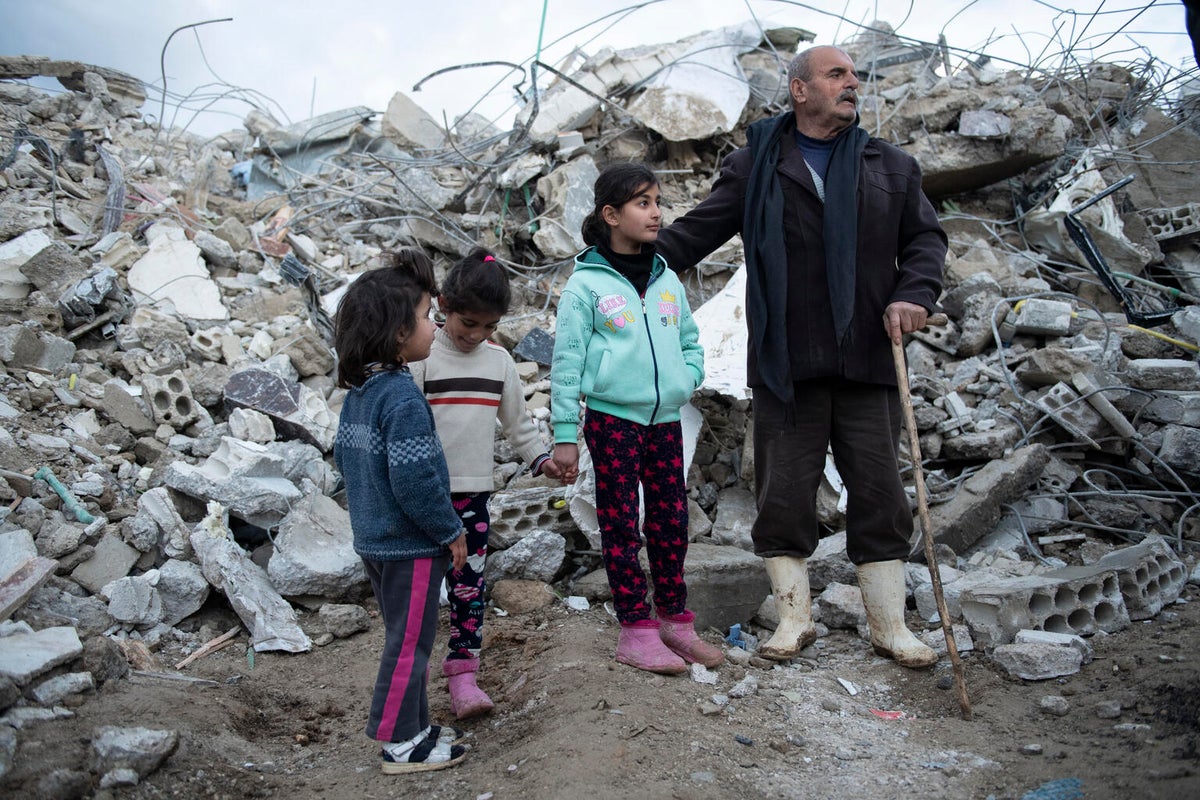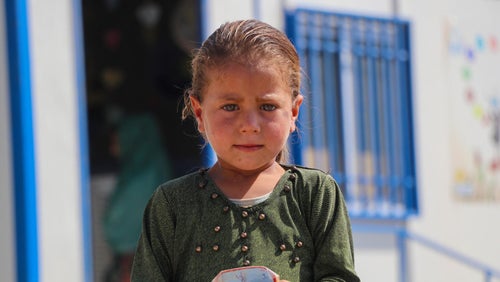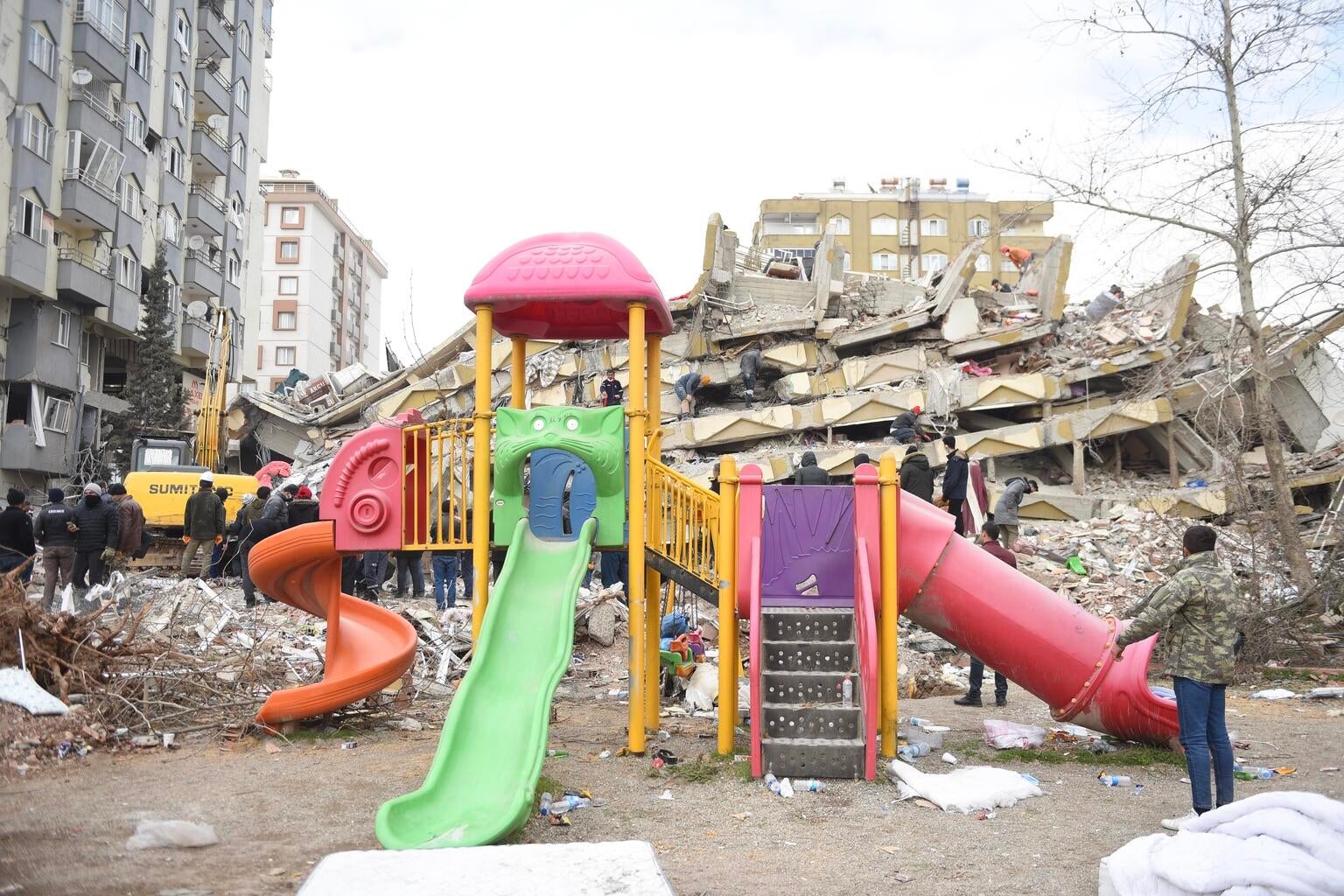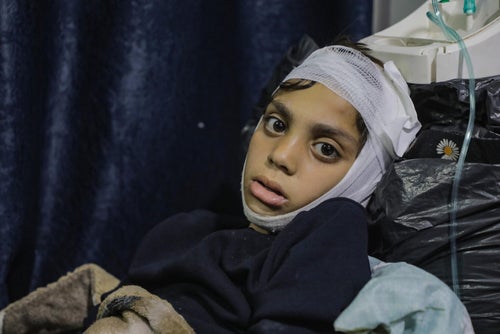A major earthquake hit the Syria and Türkiye (Turkey) border in the early hours of the morning of 6 February and left us all with heavy hearts.
The magnitude 7.7 quake, one of the strongest to hit the region in the past 100 years, was felt in Cyprus, Israel and Lebanon. Amid waves of aftershocks — and a second earthquake with a 7.5 magnitude — UNICEF teams are on the ground in Syria rushing life-saving assistance to children and families.
Many children were fast asleep when the initial earthquake struck, making the situation even more dangerous. Alongside the devastating loss of life, it’s likely that schools, hospitals and other medical facilities will have been damaged or destroyed in the wake of the earthquake, meaning the needs and recovery will be catastrophic and long lasting.
The disaster has claimed thousands of lives and a significant jump in the death toll is expected as rescuers search through metal and concrete rubble for survivors in a region already impacted by Syria's 12-year brutal civil war.
"The numbers keep increasing. There is a sense of panic, including among children. Many people, including children, are displaced and remain outside in streets and open areas. The government in Syria closed schools and universities for today, and some are being used as shelters. The psychological impact on some people we met is grave."
Syria's overwhelming crisis landscape
In Syria, children living through twelve years of war, cholera outbreaks, harsh winter conditions, face yet another tragedy following the earthquakes.
4.1 million people — mostly women and children — are facing one of the most complex humanitarian crises in the world. The scars of conflict, mass displacement, and economic turmoil run deep for the children and families in the region. 90 per cent of families were already living in poverty across Syria.
This latest disaster comes as a cruel reminder that for so many, the struggles never seem to end.

UNICEF’s response to children and families in Syria
UNICEF has been in Syria for over 50 years. Our teams are there for children before, during and after emergencies. We will stay and deliver for children through this crisis and beyond.
The recent earthquake has left a trail of destruction in its wake, and the areas hardest hit are Aleppo and Latakia, in northwest Syria, with reports of damage in Hama.
So far, UNICEF’s emergency response focus is on water, sanitation and hygiene (WASH), child protection services, nutrition and education. We are also working to protect unaccompanied children and reunite those who have become separated from their families.
UNICEF’s immediate priority is to ensure that children and families impacted by this disaster receive the support they need. Our teams stand ready to scale up and to further support the humanitarian response as the situation unfolds.
With your help, we can reach children and families in Syria with the support they desperately need. UNICEF is 100 per cent donor funded and our ability to deliver life-saving supplies is only possible thanks to people like you.
Help UNICEF reach more children in Syria as they face multiple crises.

Syria & Türkiye Earthquake
UNICEF teams are on the ground, providing urgent assistance to children and families impacted by the devastating earthquake.
Related articles
Stay up-to-date on UNICEF's work in Australia and around the world
















